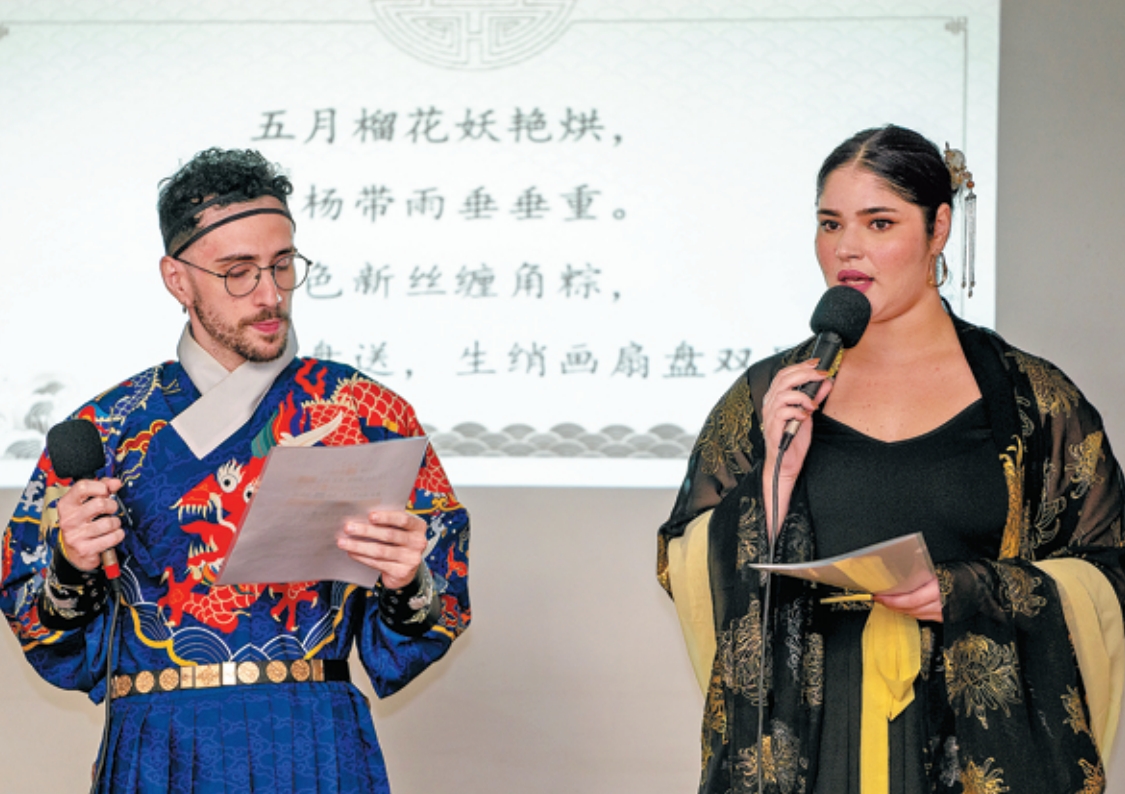Experts: Don't politicize work of Confucius Institutes


Confucius Institutes provide foreigners with opportunities and skills to properly engage, communicate with and understand China, and they should not be politicized or weaponized by the West, experts said on Friday during the ongoing World Chinese Language Conference in Beijing.
James Heimowitz, a senior consultant on Confucius Institute global development, said foreigners have a very strong interest in understanding China and it is important to give them the tools to learn about the country by themselves, as feedback coming particularly from the United States is misguided.
"Confucius Institutes, very regrettably, have become politicized and weaponized," Heimowitz said in an interview with China Daily.
In recent years, Confucius Institutes — nonprofit Chinese language and culture educational organizations — have been unfairly labeled and targeted in the US and some other Western countries, leading to the closure of a number of such institutes.
Heimowitz said that the work of Confucius Institutes "to help people understand China better through language, culture and Chinese people is such an important job", as it helps to challenge misconceptions about China which some people have in Western countries.
Confucius Institutes and other exchange programs are trying to give foreigners the skills they need to access China for themselves through learning about the Chinese language and culture.
Currently, there are 498 Confucius Institutes and 773 Confucius Classrooms in 160 countries and regions.
"Let them see and spend a little time in China. I think they can come to their own conclusions about the future direction of the country," he said.
Heimowitz himself is a beneficiary of this approach. He came to China from the US as a student 45 years ago. "I've grown up alongside and feel a sense of wonder as I get to experience firsthand the achievements of China."
Though facing challenges, the work of Confucius Institutes and Chinese language and cultural cooperation is carrying on.
The Forum on the Future Development of Confucius Institutes was held during the conference, gathering more than 1,000 guests and experts to discuss the development of the leading Chinese-language education brand.
Uzodinma Chinenye Gerlof, a Nigerian doctoral candidate at Beijing Foreign Studies University, said the Confucius Institute in Nigeria provided him and many other students with a platform to learn Chinese and come to China with scholarships.
"I believe programs like the Confucius Institutes will give people like me more opportunities and support to learn about the Chinese language and China," he said.
Tony Browne, also a senior consultant on Confucius Institute global development, said universities should seek the establishment of Confucius Institutes or agree to continue hosting one.
"It is in our interest to have a China-literate society, to have our young people, our community, our business sector interested in and knowledgeable about the Chinese language and culture, because we know that China matters," Browne said.
The two-day forum, held by the Chinese International Education Foundation, also discussed how to strengthen the connectivity of the institutes worldwide, digital development, and ways to enhance the brand's influence.
Heimowitz said the goal is to enhance understanding of China through Chinese language education.
He said that language is the fundamental bond in people-to-people communication.
"I would encourage Western governments or interest groups not to weaponize Confucius Institutes or politicize the mission and work we are trying to do," he said.
zhaoyimeng@chinadaily.com.cn
- China's CR450: A new era of high-speed rail at 400 km/h
- TAN SUO SAN HAO to pioneer future of deep-sea exploration
- Xi's discourses on Chinese modernization published in Japanese
- Officials summoned over alleged garbage bin food served to students
- Caring hearts help to enhance quality special education
- Xi sends condolences to South Korean acting president over plane crash




































